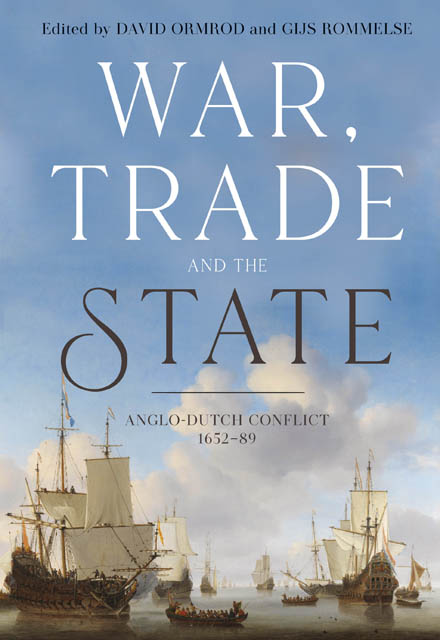3 - Anglican Royalism and the origins of the Second Anglo-Dutch War
Published online by Cambridge University Press: 18 January 2023
Summary
The origins of the Second Anglo-Dutch War used to be straightforward. Sir George Clark called it ‘the clearest case in our history of a purely commercial war’, and Charles Wilson, in his still valuable study of the three Anglo-Dutch wars, now over sixty years old, was struck by the overwhelming consensus of ‘royal dukes, timber merchants, gallants of the court, goldsmith money-lenders, peers of the realm, and civil servants’, who all agreed on the desirability of war ‘undisturbed by social, religious, or political differences’. The clash of commercial interests between the Dutch Republic and the English state from 1648 onwards had already produced the war of 1652–54; since then, new confrontations had arisen, particularly in Africa, and a renewal of war had been talked about from early in the Restoration. The re-enactment of the Commonwealth’s Navigation Act, and the adoption of the Interregnum innovation of a Council of Trade, seemed to display the revival in the Restoration of the influence that commercial interests had enjoyed under the Rump Parliament. The Anglo-Dutch Treaty of 1662 surprised many, who had expected war instead; the arrival of war two years later was less remarkable.
Much of the research on the subject published since Wilson’s work has looked at the domestic politics of the origins of the war, and has complicated, though not tried entirely to replace, the essentially economic interpretation. The House of Commons Resolution of April 1664, which had given the king confidence that Parliament would back war with the necessary resources, has been shown to have been carefully choreographed by government officials in order to put pressure on Dutch negotiators. J.R. Jones’s The Anglo-Dutch Wars of the Seventeenth Century, published in 1996, sketched in an interpretation that attributed to James, duke of York, the king’s brother and lord admiral, and an enthusiastic advocate of the African trade, the responsibility for escalating the conflict. Jones suggested that ‘the court, not the City brought about the war’. The most recent substantial contribution, Gijs Rommelse’s The Second Anglo-Dutch War, has synthesised newer interpretations, producing a complex picture of the origins of the war in both Britain and the Netherlands.
One book, Steven Pincus’s Protestantism and Patriotism: Ideologies and the Making of English Foreign Policy, 1650–1668, published in the same year as Jones’s, offered a controversial and radically different account of the background to the war.
- Type
- Chapter
- Information
- War, Trade and the StateAnglo-Dutch Conflict, 1652-89, pp. 58 - 73Publisher: Boydell & BrewerPrint publication year: 2020

